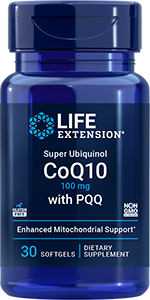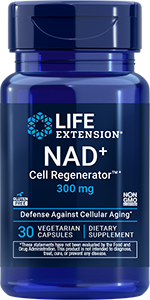
Newsletter
Newsletter
Postmenopausal women who increased intake of collagen peptides demonstrated improved bone mineral density, study finds

A randomized trial reported on November 25, 2021 in the Journal of Clinical Densitometry found that the addition of collagen peptides to a standard bone-supporting regimen of calcium and vitamin D3 was associated with greater improvements in measures of bone health compared to calcium and vitamin D3 alone.1
Collagen is important for bone health because it enables bones to absorb energy and have some flexibility – such that they don’t instantly fracture when they are highly stressed. “It is known that the mechanical integrity of the collagen network in human bone deteriorates with age, and such adverse changes correlate with the decreased toughness of the aged bone,” authors Kalliopi Lampropoulou-Adamidou of National and Kapodistrian University of Athens and colleagues wrote.
The study included 45 postmenopausal women with osteopenia, a condition of below normal bone mineral density that is associated with an increased risk of developing osteoporosis. All participants received 500 mg of calcium and 10 mcg of vitamin D3 (400 IU) daily for one year and 23 women also received 5 grams per day of collagen peptides, the building blocks of collagen. The primary endpoint was bone health markers in a pre-specified region of the tibia (a lower leg bone) where trabecular bone, the “spongy” shock absorbing bone tissue, is prominent.
After one year of treatment, women who received collagen peptides plus vitamin D and calcium experienced significant improvements in parameters related to bone mineral content and bone density in the trabecular portion of their tibia while the group receiving only vitamin D and calcium did not. Bone mineral density and mineral content also improved in the cortical bone (outer more solid portion) of the tibia among collagen peptide-intake participants compared to the calcium/vitamin D group. The group that received the collagen peptides also had greater bone density of their lower spine and changes suggestive of slight improvements in markers of bone turnover.
Products
Apply What You've Learned: Healthy bones
- Calcium and vitamin D aren’t the only players when it comes to strong bones. Make sure you’re getting enough boron, copper, magnesium, manganese, selenium, silicon and zinc.2
- Vitamin D is critical for calcium absorption—and odds are, you’re not getting enough from sunlight alone (nor should that be your goal). The American Academy of Dermatology recommends getting vitamin D from foods naturally rich in vitamin D or fortified with vitamin D, and/or non-food vitamin D sources.3
- Another vitamin that is important for strong bones is vitamin K2, which has been associated with the prevention of fractures in people with osteoporosis.4
- Regularly engaging in weight bearing exercise helps maintain bone health. Some good low-impact fitness routines (which are a safer bet for people at risk for osteoporosis5) include aerobics, walking on a treadmill, or using stair climbing or elliptical training machines. Consult your health care provider before engaging in any exercise program.
References
- Lampropoulou-Adamidou K et al. J Clin Densitom. 2021 Nov 25;S1094-6950(21)00099-8.
- Gaffney-Stomberg E. Biol Trace Elem Res. 2019 Mar;188(1):26-34.
- “Vitamin D stats and facts.” American Academy of Dermatology Association. https://www.aad.org/media/stats-vitamin-d
- Shiraki M et al. J Bone Miner Res. 2000 Mar;15(3):515-21.
- “Weight-bearing exercises. Bone Health & Osteoporosis Foundation. https://www.bonehealthandosteoporosis.org/preventing-fractures/exercise-to-stay-healthy/weight-bearing/
Featured Life Extension Magazine® Article
Get a Better Night’s Sleep, by Michael Downey
Insufficient sleep has been linked to a greater risk of cancer, diabetes, heart attacks, high blood pressure and premature mortality. Recent research has added evidence to the benefits of ashwagandha and melatonin for a good night’s sleep.
Ashwagandha is an herb used in Ayurveda, the traditional medicine of India. In a clinical trial, increasing intake of a standardized extract of ashwagandha for six weeks resulted in a 72% average increase in restorative sleep. The finding could be a boon to the one in three adults who fail to regularly obtain an optimal amount of sleep.
Melatonin is well-known for its sleep-enhancing effects. A melatonin formulation has been developed that combines immediate-release and timed-release melatonin to enable people to fall asleep rapidly and stay asleep throughout the night. Combining this dual-action melatonin with ashwagandha extract offers an even greater possibility of quality sleep.
What's Hot
Health Concern
Calcium and vitamin D intake cancels vegan women’s increased fracture risk
The August 2021 issue of The American Journal of Clinical Nutrition revealed findings from the Adventist Health Study 2 of a protective role for supplementing with calcium and vitamin D against the risk of hip fracture among female vegans, who have a greater risk of fracture than the nonvegan population.
Osteoporosis
Osteoporosis is weakening of the bones. It increases the risk of breaking bones.
Related Life Extension Magazine® Articles

Oral Collagen Improves Skin and Joint Health
Highly absorbable hydrolyzed collagen boosts internal collagen production, enhancing skin appearance and improving joint function.

High Dose Vitamin K2 Builds New Bone
Human trials show that 45 mg a day of vitamin K2 increases bone density and reduces fracture incidence.
Life Extension Magazine® Issue Now Online
A remarkable number of healthy-longevity findings have been published over the past 18 months.





